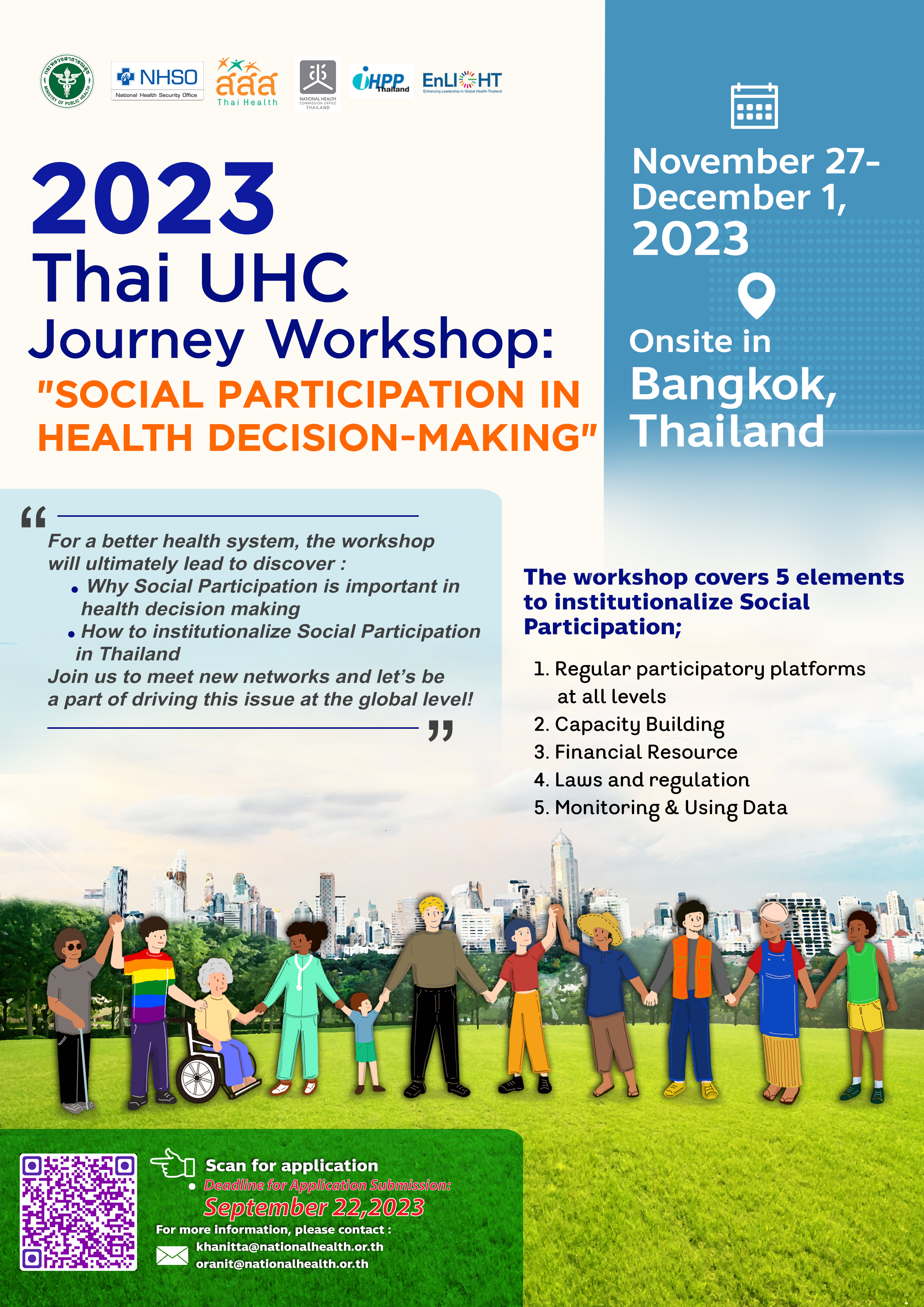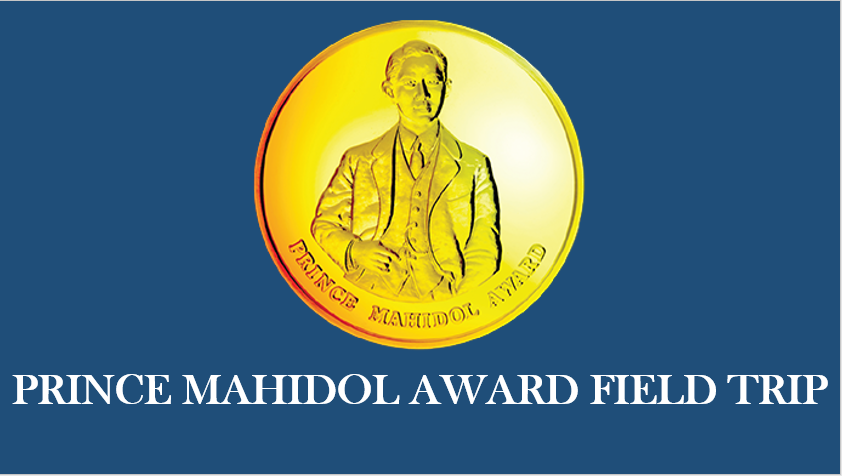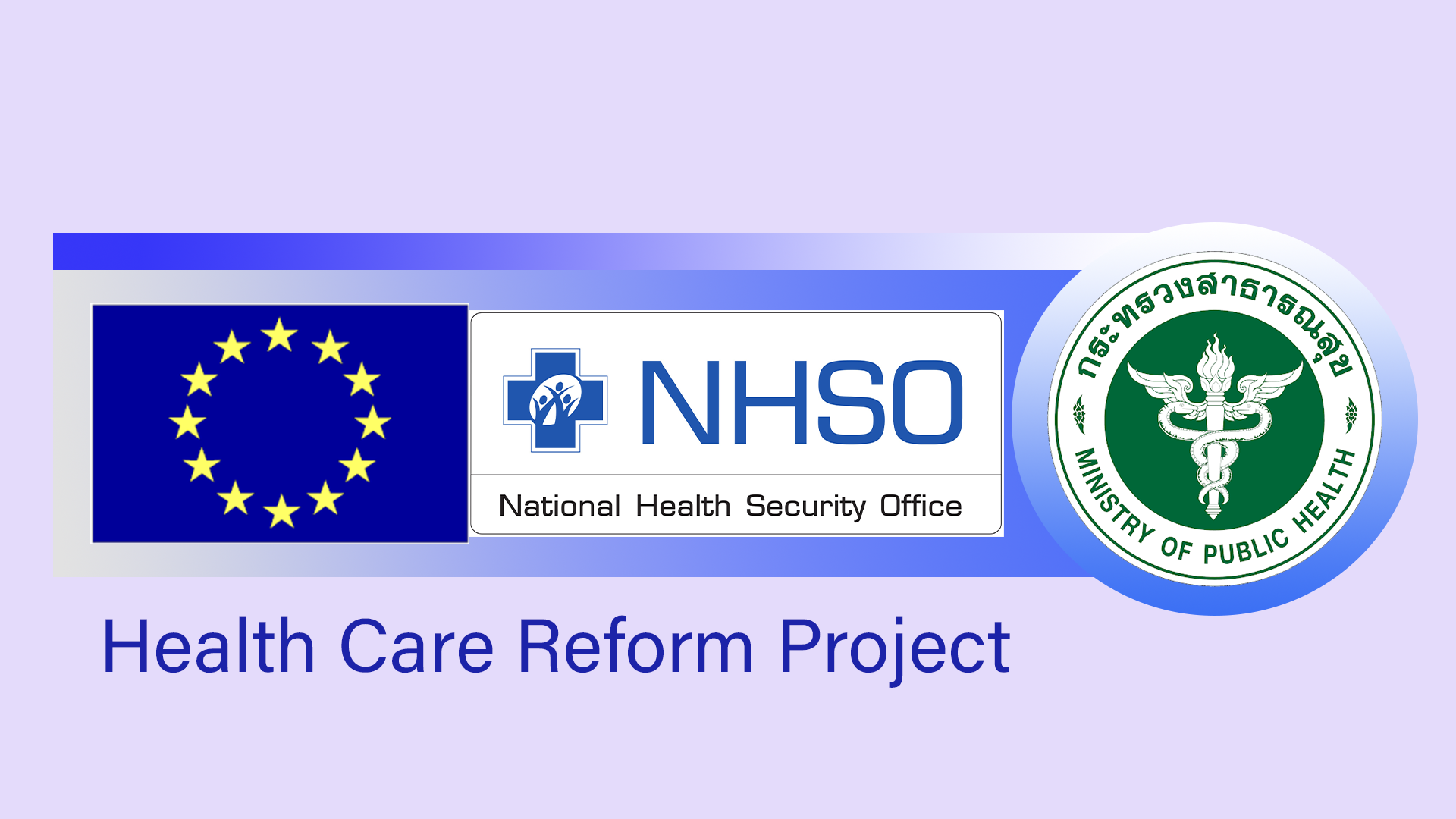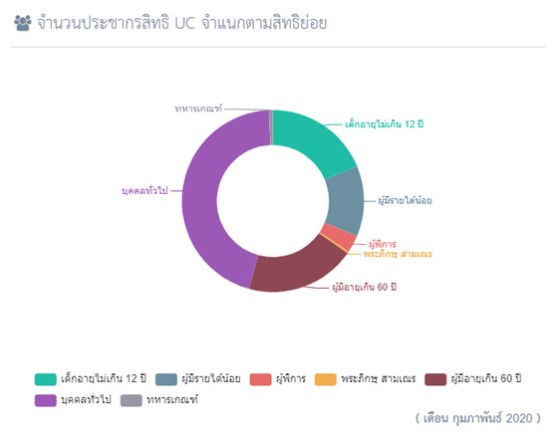Japan-Thailand set a mission on a healthier world
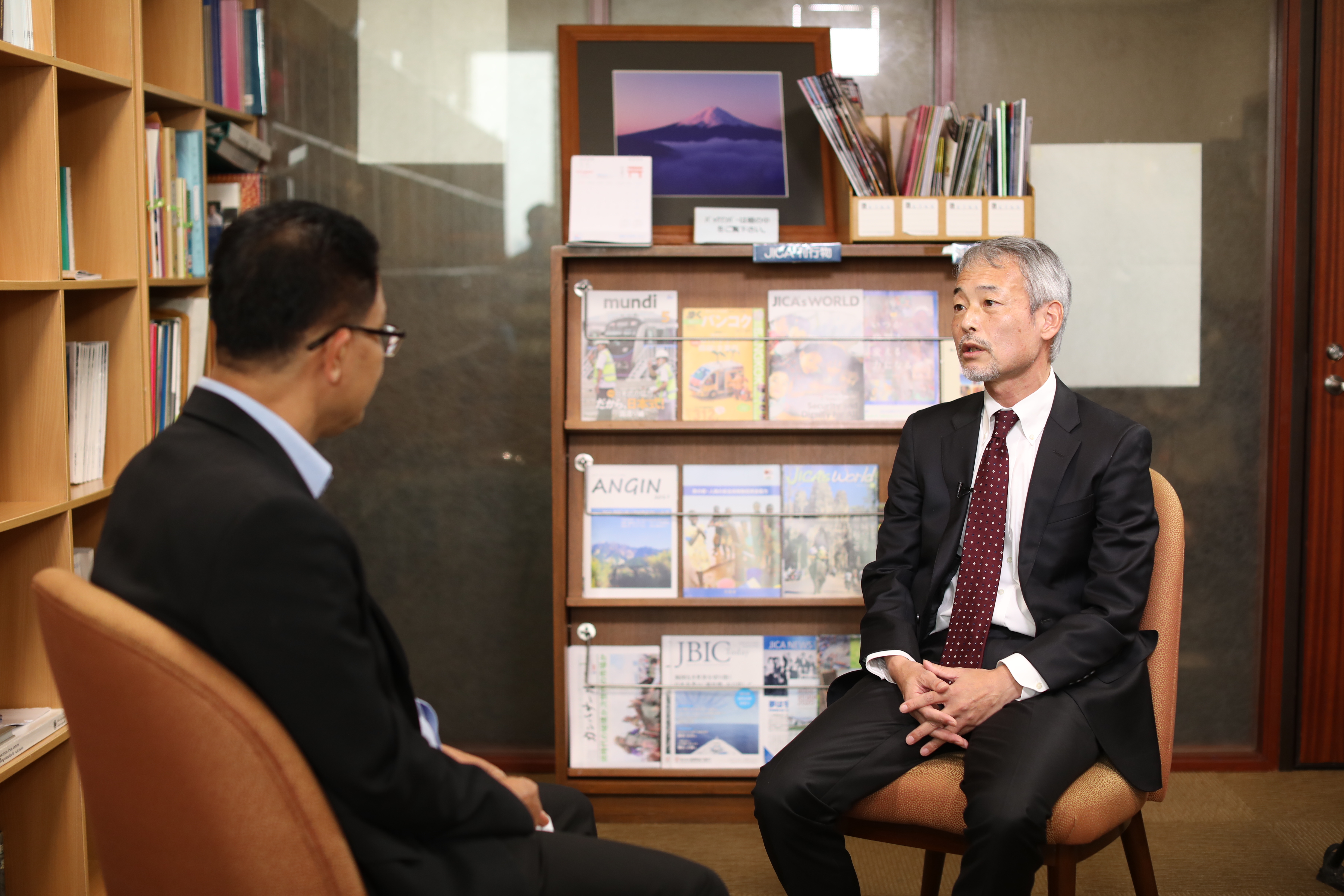
Japan-Thailand set a mission on a healthier world
Exclusive interview with Morita Takahiro, Chief Representative of JICA Thailand Office, and Kato Takuma, Chief Advisor of GLO+UHC.
This year, Japan International Cooperation Agency (JICA) and Thailand extend the collaboration on universal health coverage (UHC) and global health.
The cooperation is a part of the Partnership Project for Global Health and Universal Health Coverage Phase 2 (GLO+UHC Phase 2), aiming to strengthen health financing, health workforce, and global health of Thailand, Japan, and other countries.
Starting from this year to 2023, the partnership will deliver a series of activities, including capacity-building workshops, lectures, policy recommendations, and field visits. Japan and Thailand will share ideas on the successful establishment of UHC.
Both countries will share lessons learned and good practices of UHC implementation with other countries, including Asian and African countries striving for UHC.
Morita Takahiro, Chief Representative of JICA Thailand Office, and Kato Takuma, Chief Advisor of GLO+UHC Project, share their views on how the partnership form up and how it drives Japan and Thailand to set a mission for a healthier world.

How did JICA and Thailand start the partnership on UHC?
Morita: We [JICA] started our operation in Thailand in 1954, so we have more than 60 years of history of cooperation. As for the corporation in the health sector, it is one of our major activities in Thailand.
In the 1970s and 80s, our cooperation focused on primary health care. We extended our cooperation to human resources development, research, and medical technology based on the hospitals and [universities'] medical faculty. When it comes to the 1990s, we expanded our cooperation to mother and child health and infectious diseases, including HIV/AIDS and Dengue vaccine.
Since 2000, we have focused on the health system, including UHC. I think health is one of the most fundamental rights for the human being. UHC provides health and security to the people, which promotes the security and stability of the nation. It's the foundation of sustainable economic development, so JICA has a great interest in supporting UHC in developing countries.
Thailand established UHC in 2002. Among the middle-income countries, Thailand is the first country that established UHC and accumulated a lot of experience and knowledge in terms of the establishment and UHC operation. To JICA, Thailand is a good partner to disseminate the expertise to other countries. That's why we choose Thailand as a partner.
What are the differences and similarities between Thailand and Japan that make both countries can learn from each other?
Morita: There are two major differences between Japan and Thailand. The first is the economic situation. Japan established UHC in 1961 and joined the Organization of Economic Cooperation and Development (OECD) in 1964. That means Japan established UHC when it achieved economic development. But Thailand became a middle-income country during the 1990s. The stages of [the two countries'] economic development were different at the beginning of the UHC establishment.
The second is aging. Japan became an aging society in 1970. Thailand became an aging society in 2001. That means Japan established UHC before it entered an aging society. Thailand established UHC after it became an aging society.
In terms of the speed of aging, Japan became an aged society in 1995. Thailand will become an aged society in 2022. It took around 25 years for Japan to become an aged society from an aging society, while Thailand has 20 years to be prepared for an aged society. It will take around 50 years for European countries like France, England, and Germany. When we think about the cost coverage of UHC, we have to think about the speed and scale of aging and demography.
When we establish UHC, to some extent, economic growth is necessary. Because service delivery in the health sector should accompany health systems. When we consider budgeting programs, the government should prepare for the displacement of the health systems. In that case, we have to wait for some extent of the economic growth as well. But in parallel, as Thailand's experience shows in the course of the development, they can be prepared and facilitate access to the health systems such as UHC.
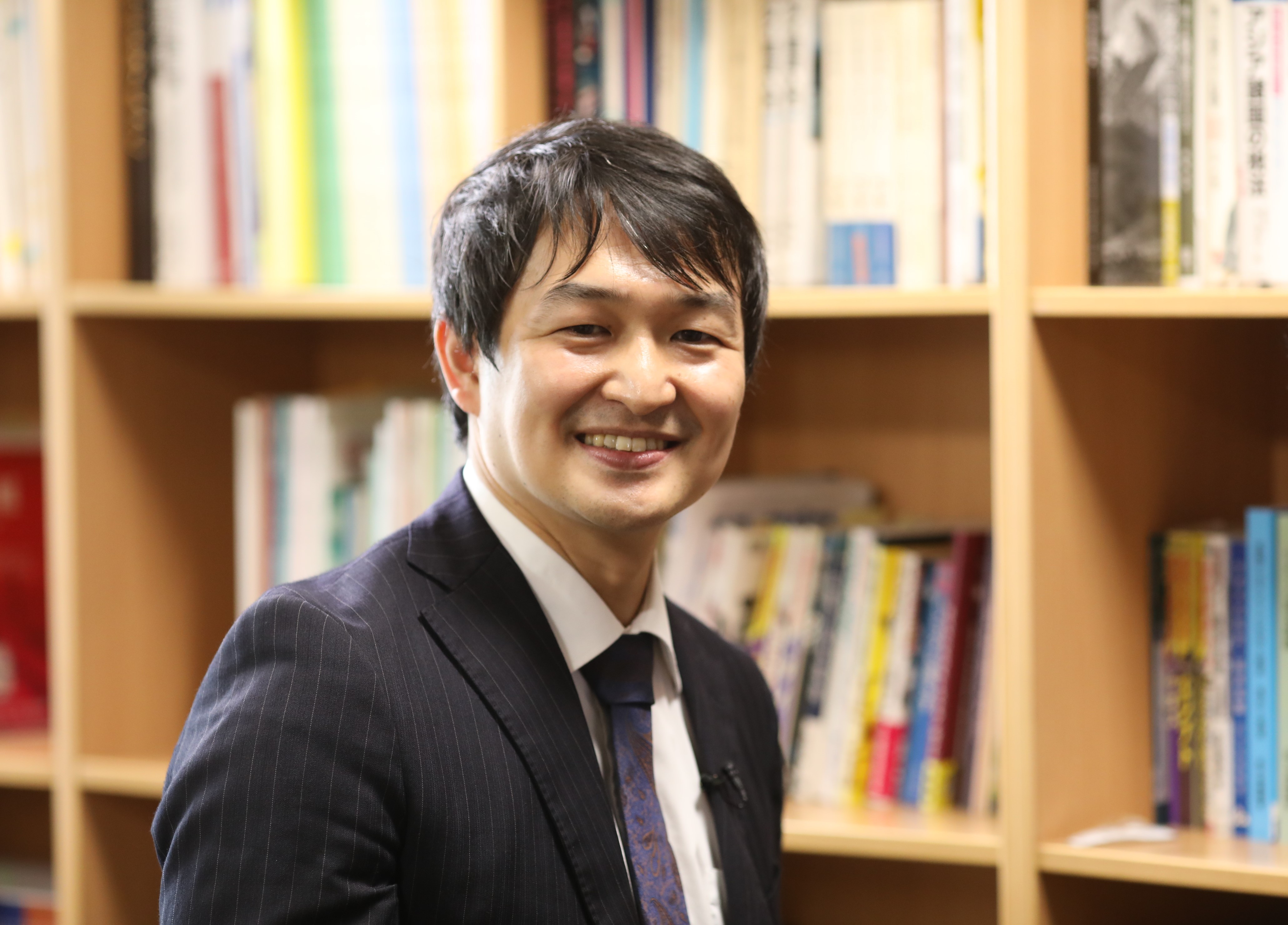
Recently, JICA and Thailand extend GLO+UHC into the second phase. What has been achieved in this project so far?
Kato: In the first phase, we conducted activities for four years. For example, we organized about 20 short-term training programs in Japan and 30 capacity-building programs in Thailand. In total, 130 Thai government officials joined those programs. About 31 Japanese experts in various fields such as economy, education, and data information engaged.
This is not one side from Thailand or Japan. This is an equal partnership project. That's because Thailand has already built up a very strong health system. That system is one of the best in the world. We must share our experience with other countries.
Achievement of the first phase can be divided into three [parts.] Through a wide range of activities, Thai officers built up the capacity to implement or revise the UHC System. For example, in the Bangkok region, the fee schedule system, which set up the unified price for medical services, was modeled on the Japanese system for suitable sustainable pricing.
Second, through the international education activities, we could share our experience with neighboring countries striving for the UHC. We could build up a network with them. Third, we could strengthen our partnership between Thailand and Japan. For example, two countries cooperated and committed through the Political Declaration for the UN High-Level Meeting on UHC. The presence of Thailand and Japan was much enhanced as a result.
What will happen during the second phase of the partnership?
Kato: Achieve UHC means almost a hundred percent of people can access essential health services regardless of their financial hardship. This is one of the Sustainable Development Goals (SDGs) that all countries worldwide need to achieve by 2030. Some of our neighboring countries are on the journey toward UHC. Through the second face, we can support them by utilizing our experience.
We will also focus on financing health workforces. Two countries [Thailand and Japan] and other countries are suffering from disproportionate distribution of physicians. Many rural areas are struggling to find or retain physicians.
Our neighboring countries are also facings rising health care costs due to an aging society and financial burden by non-communicable diseases such as hypertension, diabetes, and cancer. We need to tackle all these problems with other countries.
We have some common issues with achieving UHC. But we need to support them based on their own needs or each country's needs. That's why we've started the survey to understand each country's needs to improve the UHC and health system. The survey will help us see differences such as stakeholders, culture, and the economic stages. We are planning to have the interviews and more communication with other countries through our second phase.
What is the challenge for you to work on this partnership?
Kato: The challenge for us is COVID-19. We need to build up tailor-made activities based on countries' needs, so we need to communicate [with them] deeply. For example, we've constantly discussed with countries officers by using the online system.
Achieving UHC by 203o is a goal that we need to support other countries [to make it happen.] That's why this partnership is very important. We [ Thailand and Japan] have a history of achieving UHC. We need to utilize our experience to support the neighboring countries on their own programs. We need to share our experience first, communicate more, and find out how to cooperate with them.
IN DEPTH
Japan-Thailand set a mission on a healthier world

Japan-Thailand set a mission on a healthier world
Exclusive interview with Morita Takahiro, Chief Representative of JICA Thailand Office, and Kato Takuma, Chief Advisor of GLO+UHC.
This year, Japan International Cooperation Agency (JICA) and Thailand extend the collaboration on universal health coverage (UHC) and global health.
The cooperation is a part of the Partnership Project for Global Health and Universal Health Coverage Phase 2 (GLO+UHC Phase 2), aiming to strengthen health financing, health workforce, and global health of Thailand, Japan, and other countries.
Starting from this year to 2023, the partnership will deliver a series of activities, including capacity-building workshops, lectures, policy recommendations, and field visits. Japan and Thailand will share ideas on the successful establishment of UHC.
Both countries will share lessons learned and good practices of UHC implementation with other countries, including Asian and African countries striving for UHC.
Morita Takahiro, Chief Representative of JICA Thailand Office, and Kato Takuma, Chief Advisor of GLO+UHC Project, share their views on how the partnership form up and how it drives Japan and Thailand to set a mission for a healthier world.

How did JICA and Thailand start the partnership on UHC?
Morita: We [JICA] started our operation in Thailand in 1954, so we have more than 60 years of history of cooperation. As for the corporation in the health sector, it is one of our major activities in Thailand.
In the 1970s and 80s, our cooperation focused on primary health care. We extended our cooperation to human resources development, research, and medical technology based on the hospitals and [universities'] medical faculty. When it comes to the 1990s, we expanded our cooperation to mother and child health and infectious diseases, including HIV/AIDS and Dengue vaccine.
Since 2000, we have focused on the health system, including UHC. I think health is one of the most fundamental rights for the human being. UHC provides health and security to the people, which promotes the security and stability of the nation. It's the foundation of sustainable economic development, so JICA has a great interest in supporting UHC in developing countries.
Thailand established UHC in 2002. Among the middle-income countries, Thailand is the first country that established UHC and accumulated a lot of experience and knowledge in terms of the establishment and UHC operation. To JICA, Thailand is a good partner to disseminate the expertise to other countries. That's why we choose Thailand as a partner.
What are the differences and similarities between Thailand and Japan that make both countries can learn from each other?
Morita: There are two major differences between Japan and Thailand. The first is the economic situation. Japan established UHC in 1961 and joined the Organization of Economic Cooperation and Development (OECD) in 1964. That means Japan established UHC when it achieved economic development. But Thailand became a middle-income country during the 1990s. The stages of [the two countries'] economic development were different at the beginning of the UHC establishment.
The second is aging. Japan became an aging society in 1970. Thailand became an aging society in 2001. That means Japan established UHC before it entered an aging society. Thailand established UHC after it became an aging society.
In terms of the speed of aging, Japan became an aged society in 1995. Thailand will become an aged society in 2022. It took around 25 years for Japan to become an aged society from an aging society, while Thailand has 20 years to be prepared for an aged society. It will take around 50 years for European countries like France, England, and Germany. When we think about the cost coverage of UHC, we have to think about the speed and scale of aging and demography.
When we establish UHC, to some extent, economic growth is necessary. Because service delivery in the health sector should accompany health systems. When we consider budgeting programs, the government should prepare for the displacement of the health systems. In that case, we have to wait for some extent of the economic growth as well. But in parallel, as Thailand's experience shows in the course of the development, they can be prepared and facilitate access to the health systems such as UHC.

Recently, JICA and Thailand extend GLO+UHC into the second phase. What has been achieved in this project so far?
Kato: In the first phase, we conducted activities for four years. For example, we organized about 20 short-term training programs in Japan and 30 capacity-building programs in Thailand. In total, 130 Thai government officials joined those programs. About 31 Japanese experts in various fields such as economy, education, and data information engaged.
This is not one side from Thailand or Japan. This is an equal partnership project. That's because Thailand has already built up a very strong health system. That system is one of the best in the world. We must share our experience with other countries.
Achievement of the first phase can be divided into three [parts.] Through a wide range of activities, Thai officers built up the capacity to implement or revise the UHC System. For example, in the Bangkok region, the fee schedule system, which set up the unified price for medical services, was modeled on the Japanese system for suitable sustainable pricing.
Second, through the international education activities, we could share our experience with neighboring countries striving for the UHC. We could build up a network with them. Third, we could strengthen our partnership between Thailand and Japan. For example, two countries cooperated and committed through the Political Declaration for the UN High-Level Meeting on UHC. The presence of Thailand and Japan was much enhanced as a result.
What will happen during the second phase of the partnership?
Kato: Achieve UHC means almost a hundred percent of people can access essential health services regardless of their financial hardship. This is one of the Sustainable Development Goals (SDGs) that all countries worldwide need to achieve by 2030. Some of our neighboring countries are on the journey toward UHC. Through the second face, we can support them by utilizing our experience.
We will also focus on financing health workforces. Two countries [Thailand and Japan] and other countries are suffering from disproportionate distribution of physicians. Many rural areas are struggling to find or retain physicians.
Our neighboring countries are also facings rising health care costs due to an aging society and financial burden by non-communicable diseases such as hypertension, diabetes, and cancer. We need to tackle all these problems with other countries.
We have some common issues with achieving UHC. But we need to support them based on their own needs or each country's needs. That's why we've started the survey to understand each country's needs to improve the UHC and health system. The survey will help us see differences such as stakeholders, culture, and the economic stages. We are planning to have the interviews and more communication with other countries through our second phase.
What is the challenge for you to work on this partnership?
Kato: The challenge for us is COVID-19. We need to build up tailor-made activities based on countries' needs, so we need to communicate [with them] deeply. For example, we've constantly discussed with countries officers by using the online system.
Achieving UHC by 203o is a goal that we need to support other countries [to make it happen.] That's why this partnership is very important. We [ Thailand and Japan] have a history of achieving UHC. We need to utilize our experience to support the neighboring countries on their own programs. We need to share our experience first, communicate more, and find out how to cooperate with them.
Events
Japan-Thailand set a mission on a healthier world

Japan-Thailand set a mission on a healthier world
Exclusive interview with Morita Takahiro, Chief Representative of JICA Thailand Office, and Kato Takuma, Chief Advisor of GLO+UHC.
This year, Japan International Cooperation Agency (JICA) and Thailand extend the collaboration on universal health coverage (UHC) and global health.
The cooperation is a part of the Partnership Project for Global Health and Universal Health Coverage Phase 2 (GLO+UHC Phase 2), aiming to strengthen health financing, health workforce, and global health of Thailand, Japan, and other countries.
Starting from this year to 2023, the partnership will deliver a series of activities, including capacity-building workshops, lectures, policy recommendations, and field visits. Japan and Thailand will share ideas on the successful establishment of UHC.
Both countries will share lessons learned and good practices of UHC implementation with other countries, including Asian and African countries striving for UHC.
Morita Takahiro, Chief Representative of JICA Thailand Office, and Kato Takuma, Chief Advisor of GLO+UHC Project, share their views on how the partnership form up and how it drives Japan and Thailand to set a mission for a healthier world.

How did JICA and Thailand start the partnership on UHC?
Morita: We [JICA] started our operation in Thailand in 1954, so we have more than 60 years of history of cooperation. As for the corporation in the health sector, it is one of our major activities in Thailand.
In the 1970s and 80s, our cooperation focused on primary health care. We extended our cooperation to human resources development, research, and medical technology based on the hospitals and [universities'] medical faculty. When it comes to the 1990s, we expanded our cooperation to mother and child health and infectious diseases, including HIV/AIDS and Dengue vaccine.
Since 2000, we have focused on the health system, including UHC. I think health is one of the most fundamental rights for the human being. UHC provides health and security to the people, which promotes the security and stability of the nation. It's the foundation of sustainable economic development, so JICA has a great interest in supporting UHC in developing countries.
Thailand established UHC in 2002. Among the middle-income countries, Thailand is the first country that established UHC and accumulated a lot of experience and knowledge in terms of the establishment and UHC operation. To JICA, Thailand is a good partner to disseminate the expertise to other countries. That's why we choose Thailand as a partner.
What are the differences and similarities between Thailand and Japan that make both countries can learn from each other?
Morita: There are two major differences between Japan and Thailand. The first is the economic situation. Japan established UHC in 1961 and joined the Organization of Economic Cooperation and Development (OECD) in 1964. That means Japan established UHC when it achieved economic development. But Thailand became a middle-income country during the 1990s. The stages of [the two countries'] economic development were different at the beginning of the UHC establishment.
The second is aging. Japan became an aging society in 1970. Thailand became an aging society in 2001. That means Japan established UHC before it entered an aging society. Thailand established UHC after it became an aging society.
In terms of the speed of aging, Japan became an aged society in 1995. Thailand will become an aged society in 2022. It took around 25 years for Japan to become an aged society from an aging society, while Thailand has 20 years to be prepared for an aged society. It will take around 50 years for European countries like France, England, and Germany. When we think about the cost coverage of UHC, we have to think about the speed and scale of aging and demography.
When we establish UHC, to some extent, economic growth is necessary. Because service delivery in the health sector should accompany health systems. When we consider budgeting programs, the government should prepare for the displacement of the health systems. In that case, we have to wait for some extent of the economic growth as well. But in parallel, as Thailand's experience shows in the course of the development, they can be prepared and facilitate access to the health systems such as UHC.

Recently, JICA and Thailand extend GLO+UHC into the second phase. What has been achieved in this project so far?
Kato: In the first phase, we conducted activities for four years. For example, we organized about 20 short-term training programs in Japan and 30 capacity-building programs in Thailand. In total, 130 Thai government officials joined those programs. About 31 Japanese experts in various fields such as economy, education, and data information engaged.
This is not one side from Thailand or Japan. This is an equal partnership project. That's because Thailand has already built up a very strong health system. That system is one of the best in the world. We must share our experience with other countries.
Achievement of the first phase can be divided into three [parts.] Through a wide range of activities, Thai officers built up the capacity to implement or revise the UHC System. For example, in the Bangkok region, the fee schedule system, which set up the unified price for medical services, was modeled on the Japanese system for suitable sustainable pricing.
Second, through the international education activities, we could share our experience with neighboring countries striving for the UHC. We could build up a network with them. Third, we could strengthen our partnership between Thailand and Japan. For example, two countries cooperated and committed through the Political Declaration for the UN High-Level Meeting on UHC. The presence of Thailand and Japan was much enhanced as a result.
What will happen during the second phase of the partnership?
Kato: Achieve UHC means almost a hundred percent of people can access essential health services regardless of their financial hardship. This is one of the Sustainable Development Goals (SDGs) that all countries worldwide need to achieve by 2030. Some of our neighboring countries are on the journey toward UHC. Through the second face, we can support them by utilizing our experience.
We will also focus on financing health workforces. Two countries [Thailand and Japan] and other countries are suffering from disproportionate distribution of physicians. Many rural areas are struggling to find or retain physicians.
Our neighboring countries are also facings rising health care costs due to an aging society and financial burden by non-communicable diseases such as hypertension, diabetes, and cancer. We need to tackle all these problems with other countries.
We have some common issues with achieving UHC. But we need to support them based on their own needs or each country's needs. That's why we've started the survey to understand each country's needs to improve the UHC and health system. The survey will help us see differences such as stakeholders, culture, and the economic stages. We are planning to have the interviews and more communication with other countries through our second phase.
What is the challenge for you to work on this partnership?
Kato: The challenge for us is COVID-19. We need to build up tailor-made activities based on countries' needs, so we need to communicate [with them] deeply. For example, we've constantly discussed with countries officers by using the online system.
Achieving UHC by 203o is a goal that we need to support other countries [to make it happen.] That's why this partnership is very important. We [ Thailand and Japan] have a history of achieving UHC. We need to utilize our experience to support the neighboring countries on their own programs. We need to share our experience first, communicate more, and find out how to cooperate with them.
RESOURCE CENTER
SECRETARY-GENERAL
Japan-Thailand set a mission on a healthier world

Japan-Thailand set a mission on a healthier world
Exclusive interview with Morita Takahiro, Chief Representative of JICA Thailand Office, and Kato Takuma, Chief Advisor of GLO+UHC.
This year, Japan International Cooperation Agency (JICA) and Thailand extend the collaboration on universal health coverage (UHC) and global health.
The cooperation is a part of the Partnership Project for Global Health and Universal Health Coverage Phase 2 (GLO+UHC Phase 2), aiming to strengthen health financing, health workforce, and global health of Thailand, Japan, and other countries.
Starting from this year to 2023, the partnership will deliver a series of activities, including capacity-building workshops, lectures, policy recommendations, and field visits. Japan and Thailand will share ideas on the successful establishment of UHC.
Both countries will share lessons learned and good practices of UHC implementation with other countries, including Asian and African countries striving for UHC.
Morita Takahiro, Chief Representative of JICA Thailand Office, and Kato Takuma, Chief Advisor of GLO+UHC Project, share their views on how the partnership form up and how it drives Japan and Thailand to set a mission for a healthier world.

How did JICA and Thailand start the partnership on UHC?
Morita: We [JICA] started our operation in Thailand in 1954, so we have more than 60 years of history of cooperation. As for the corporation in the health sector, it is one of our major activities in Thailand.
In the 1970s and 80s, our cooperation focused on primary health care. We extended our cooperation to human resources development, research, and medical technology based on the hospitals and [universities'] medical faculty. When it comes to the 1990s, we expanded our cooperation to mother and child health and infectious diseases, including HIV/AIDS and Dengue vaccine.
Since 2000, we have focused on the health system, including UHC. I think health is one of the most fundamental rights for the human being. UHC provides health and security to the people, which promotes the security and stability of the nation. It's the foundation of sustainable economic development, so JICA has a great interest in supporting UHC in developing countries.
Thailand established UHC in 2002. Among the middle-income countries, Thailand is the first country that established UHC and accumulated a lot of experience and knowledge in terms of the establishment and UHC operation. To JICA, Thailand is a good partner to disseminate the expertise to other countries. That's why we choose Thailand as a partner.
What are the differences and similarities between Thailand and Japan that make both countries can learn from each other?
Morita: There are two major differences between Japan and Thailand. The first is the economic situation. Japan established UHC in 1961 and joined the Organization of Economic Cooperation and Development (OECD) in 1964. That means Japan established UHC when it achieved economic development. But Thailand became a middle-income country during the 1990s. The stages of [the two countries'] economic development were different at the beginning of the UHC establishment.
The second is aging. Japan became an aging society in 1970. Thailand became an aging society in 2001. That means Japan established UHC before it entered an aging society. Thailand established UHC after it became an aging society.
In terms of the speed of aging, Japan became an aged society in 1995. Thailand will become an aged society in 2022. It took around 25 years for Japan to become an aged society from an aging society, while Thailand has 20 years to be prepared for an aged society. It will take around 50 years for European countries like France, England, and Germany. When we think about the cost coverage of UHC, we have to think about the speed and scale of aging and demography.
When we establish UHC, to some extent, economic growth is necessary. Because service delivery in the health sector should accompany health systems. When we consider budgeting programs, the government should prepare for the displacement of the health systems. In that case, we have to wait for some extent of the economic growth as well. But in parallel, as Thailand's experience shows in the course of the development, they can be prepared and facilitate access to the health systems such as UHC.

Recently, JICA and Thailand extend GLO+UHC into the second phase. What has been achieved in this project so far?
Kato: In the first phase, we conducted activities for four years. For example, we organized about 20 short-term training programs in Japan and 30 capacity-building programs in Thailand. In total, 130 Thai government officials joined those programs. About 31 Japanese experts in various fields such as economy, education, and data information engaged.
This is not one side from Thailand or Japan. This is an equal partnership project. That's because Thailand has already built up a very strong health system. That system is one of the best in the world. We must share our experience with other countries.
Achievement of the first phase can be divided into three [parts.] Through a wide range of activities, Thai officers built up the capacity to implement or revise the UHC System. For example, in the Bangkok region, the fee schedule system, which set up the unified price for medical services, was modeled on the Japanese system for suitable sustainable pricing.
Second, through the international education activities, we could share our experience with neighboring countries striving for the UHC. We could build up a network with them. Third, we could strengthen our partnership between Thailand and Japan. For example, two countries cooperated and committed through the Political Declaration for the UN High-Level Meeting on UHC. The presence of Thailand and Japan was much enhanced as a result.
What will happen during the second phase of the partnership?
Kato: Achieve UHC means almost a hundred percent of people can access essential health services regardless of their financial hardship. This is one of the Sustainable Development Goals (SDGs) that all countries worldwide need to achieve by 2030. Some of our neighboring countries are on the journey toward UHC. Through the second face, we can support them by utilizing our experience.
We will also focus on financing health workforces. Two countries [Thailand and Japan] and other countries are suffering from disproportionate distribution of physicians. Many rural areas are struggling to find or retain physicians.
Our neighboring countries are also facings rising health care costs due to an aging society and financial burden by non-communicable diseases such as hypertension, diabetes, and cancer. We need to tackle all these problems with other countries.
We have some common issues with achieving UHC. But we need to support them based on their own needs or each country's needs. That's why we've started the survey to understand each country's needs to improve the UHC and health system. The survey will help us see differences such as stakeholders, culture, and the economic stages. We are planning to have the interviews and more communication with other countries through our second phase.
What is the challenge for you to work on this partnership?
Kato: The challenge for us is COVID-19. We need to build up tailor-made activities based on countries' needs, so we need to communicate [with them] deeply. For example, we've constantly discussed with countries officers by using the online system.
Achieving UHC by 203o is a goal that we need to support other countries [to make it happen.] That's why this partnership is very important. We [ Thailand and Japan] have a history of achieving UHC. We need to utilize our experience to support the neighboring countries on their own programs. We need to share our experience first, communicate more, and find out how to cooperate with them.
VIDEOS
Thailand's UHC Journey
UHC Public relations
